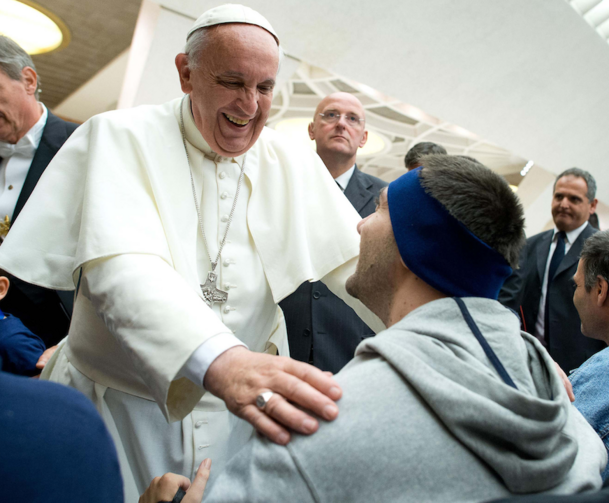In his final address as president of the United States Conference of Catholic Bishops, New York Cardinal Timothy Dolan outlined a series of steps the bishops can take to protect religious freedom around the world, "a central social and political concern of our time." Speaking at the opening of the U.S. bishops fall general assembly in Baltimore, Cardinal Dolan cited a sorry litany of acts of oppression and persecution against Christian minority communities around the world (and to a lesser extent other religious minorities). He called upon his brother bishops to champion the cause of people around the world being persecuted because of their faith. Is it telling that he made only a passing reference to the U.S. bishops' domestic campiagn for religious liberty?
"We as bishops, as shepherds of one of the most richly blessed communities of faith on the planet, as pastors who have spoken with enthusiastic unity in defense of our own religious freedom, must become advocates and champions for these Christians whose lives literally hang in the balance, as we dare not allow our laudable battles over religious freedom at home to obscure the actual violence being inflicted on Christians elsewhere," the cardinal said.
"We are living in what must be recognized as, in the words of Blessed John Paul II, 'as a new age or martyrs,'" Cardinal Dolan said, noting that as many as 1 million Christians have been killed in the first 13 years of the 21st century because of their faith.
The cardinal asked bishops to raise awareness of the plight of Christians within their dioceses and urged them to contact political leaders to persuade them to make the protection of "at-risk Christians a foreign policy priority."
A guest speaker of the assembly's first day was Archbishop Carlo Maria Viganò, Apostolic Nuncio to the United States, who urged the U.S. bishops to take to heart the words of Pope Paul VI in Evangelii Nuntiandi:
"It is appropriate, first of all, to emphasize the following point: for the Church, the first means of evangelization is the witness of an authentically Christian life, given over to God in a communion that nothing should destroy and at the same time given to one's neighbor with limitless zeal. As we said recently to a group of lay people, 'Modern man listens more willingly to witnesses than to teachers. and if it does listen to teachers, it is because they are witnesses.' ... It is primarily by her conduct and by her life that the Church will evangelize the world, in other words' by her living witness of fidelity to the Lord Jesus — the witness of poverty and detachment, of freedom in the face of the powers of this world, in short, the witness of sanctity."
He quoted further from Evangelii Nuntiandi: "The witness of life has become more than ever an essential condition for real effectiveness in preaching. Precisely because of this, we are, to a certain extent, responsible for the progress of the Gospel we proclaim...The world calls for, and expects from us, simplicity of life, the spirit of prayer, charity towards all, especially towards the lowly and the poor, obedience and humility, detachment and self-sacrifice. Without this mark of holiness, our word will have difficulty in touching the heart of modern man. It risks being vain and sterile" (76).
"No one can dispute the clear fact that our present Holy Father himself, as the Supreme Teacher, is giving us by his own witness, an example of how to live a life attuned to the values of the Gospel," Archbishop Vigano said. "While each of us must take into consideration our adaptability to the many different circumstances and cultures in which we live and the people whom we serve," he said, "there has to be a noticeable lifestyle characterized by simplicity and holiness of life. This is a sure way to bring our people to an awareness of the truth of our message.
"The Holy Father wants bishops in tune with their people. When this past June I met with [Pope Francis] in his simple apartment at the Casa Santa Maria for a fruitful discussion, he made a special point of saying that he wants pastoral bishops, not bishops who profess or follow a particular ideology."
While noting positively the diversity in the U.S. church, the archbishop warned "we must take care that, for us as a Church, this diversity does not grow into division through misinterpretation or misunderstanding, and that division does not deteriorate into fragmentation."
He added, "I recently came upon an article on the political situation in America over the past fifty years, and I caught sight of the subtitle which read: 'The era of polarization began as Americans lost confidence in their leaders.' Well said, since the Catholic Church will preserve her unity and strength as long as its people have trust in their bishops. The sheep will gather together as one; they recognize and listen to the voice of their shepherd who calls out to them, walks with them, and is ready to give his life for them."








